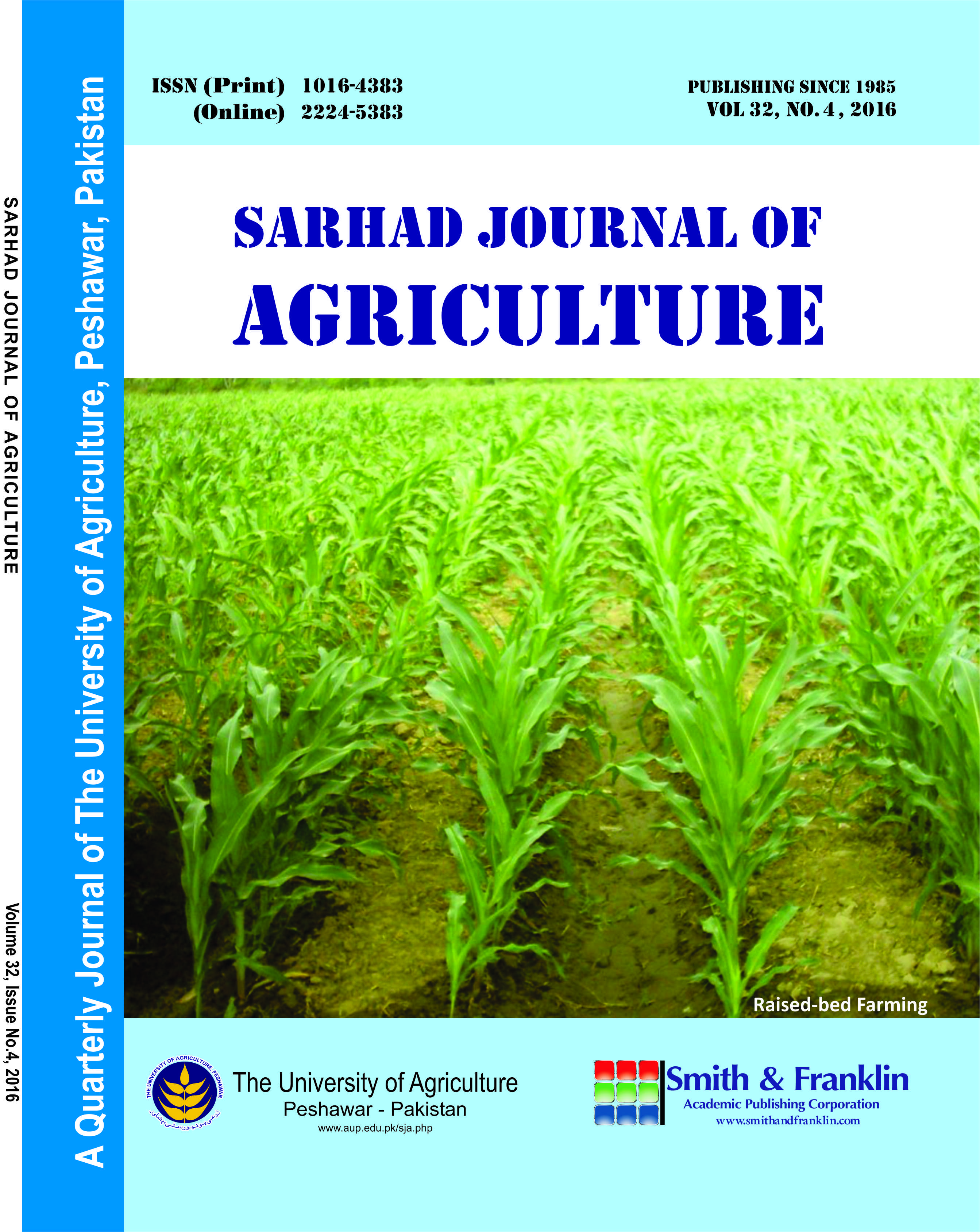This research aimed to investigate management strategies for rehabilitation of soil quality and crops productivity on eroded agricultural land. The research was conducted with three cropping patterns viz wheat after maize, lentil after maize and wheat-lentil intercrop after maize in main plots and four fertilizer treatments viz the control, farmer’s practice (FP) (N:P2O5 @ 60:45 and 15:30 kg ha-1 for cereals and lentils), recommended dose (RD) (N:P2O5:K2O @ 120:90:60 and 30:60:0 kg ha-1 for cereal and lentils) and integrated nutrient management (INM) (N:P2O5:K2O + FYM @ 60:90:60 kg + 20 t ha-1 for cereals and 7:30:0 kg + 20 tons ha-1 for lentils) were applied in sub-plots (20 m2) of an RCB design. In INM, significant (p<0.05) improvement in wheat and lentil yield (by 9 and 13%, respectively) was noted over the RD whilst both showed statistically similar crude protein content. Compared to the control, INM significantly (p<0.05) improved the wheat and lentil yield by 128 and 87%, respectively, and the crude protein by 17%. Yield improved by 13% for wheat in intercrop over the wheat after maize and by 46% for lentil after maize over the lentil in intercrop. The INM treatment showed 94% higher OM, 10% reduced bulk density (ρb) and 12, 20 and 48% higher porosity (ƒ), saturation (ω) and available water (θ), respectively over the fertilizer control, whilst amongst cropping patterns, lentil after maize effect was significantly (p<0.01) superior over the wheat after maize and wheat+lentil intercrop after maize for improving soil properties. Significant correlation existed between bulk density and yield (r2=0.96 and 0.91) and soil OM and yield (r2=0.84 and 0.75) for wheat and lentils, respectively, as well as among soil properties (OM and bulk density and bulk density and available water content in soil, r2=0.84 and 0.92, respectively). The study concluded that plant nutrition under eroded conditions should be based on INM where half of the recommended N and recommended P and K fertilizers should be applied in combination with legume crop inclusion in cropping patterns for eroded soil yield and fertility restoration.







